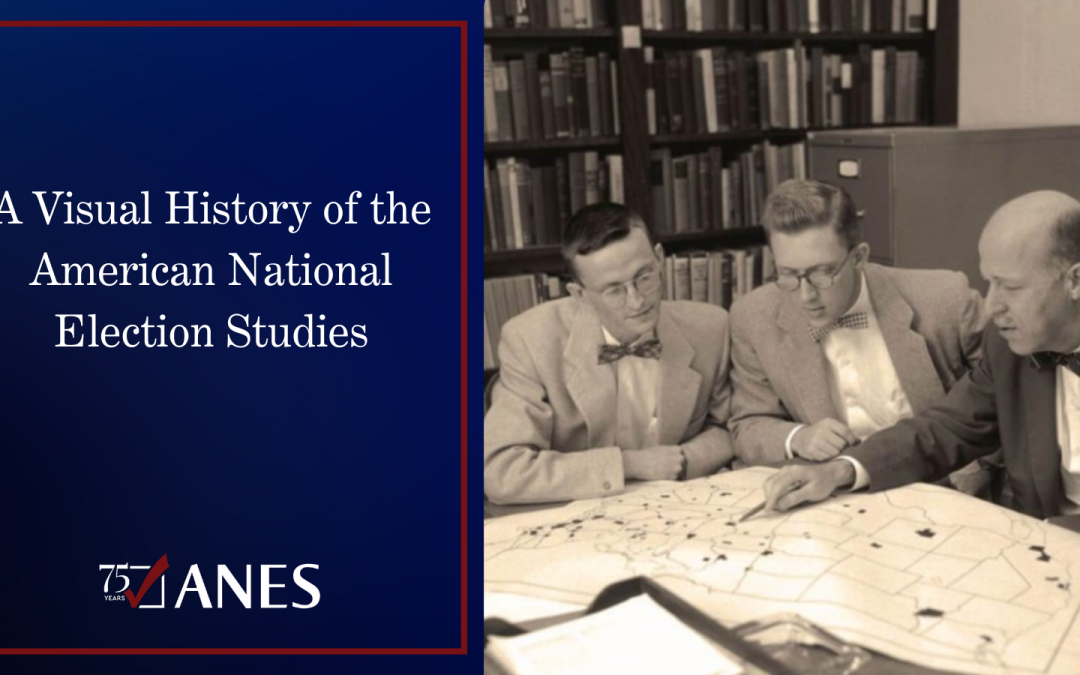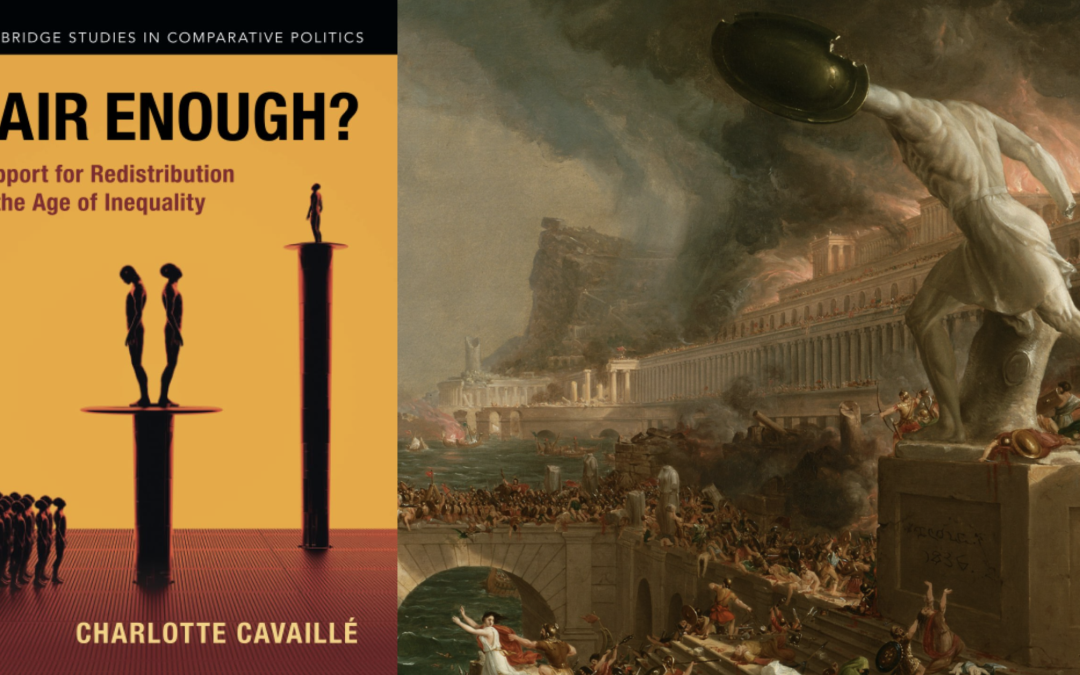CPS Blog
The Center for Political Studies (CPS) is a non-partisan research center. Posts are not endorsements.

The ANES wins AAPOR’s 2024 Policy Impact Award
The American National Election Studies (ANES) has been recognized by the American Association for Public Opinion Research (AAPOR) with its Policy Impact Award– given annually to outstanding projects making a clear impact, improving policy decisions, practice and...

The ANES at 75: The project’s continuing impact on scholars of American politics
Every year, hundreds of publications, dissertations, and scientific conference papers are written using data from the American National Election Studies (ANES). The ANES has had a profound impact on the study of American political attitudes and behavior and the work...

A Visual History of the American National Election Studies
The American National Election Studies (ANES) is the definitive study of American political attitudes and behavior. The project has surveyed American citizens before and after every presidential election since 1948. With a time series of core questions asked continuously across many elections, these surveys provide a window onto the sweep and the pivot points of historic change in American public opinion. In recent studies, new questions comprise about 30 percent of each survey, allowing users to understand contemporary issues that might be driving American political dynamics. This visual history of the ANES was written on the occasion of its 75th anniversary.

Reflections on the American National Election Studies: An Interview with Nicholas Valentino
This year marks the 75th anniversary of the American National Election Studies– the definitive study of American political attitudes and behavior. The ANES has run national surveys of citizens before and after every presidential election since 1948, providing a...

How do Americans react to the racial wealth gap?
Information about the wealth gap between Blacks and whites increases Americans’ awareness of disparity, but does little to increase their support for affirmative action, reparations Since the “racial reckoning” of 2020, Americans have become increasingly aware of the...

How Do White Churches Talk about Racism?
After the murders of George Floyd and Breanna Taylor by the police in 2020, the United States witnessed what was arguably the largest protest movement in that nation's history. Millions of Americans marched in protest of racist police violence and in pursuit of...

Meet Megan Stewart: Expert on inequality and political violence has joined the Center for Political Studies
As an undergraduate, associate professor Megan Stewart took a class on Middle East politics and became interested in how a political movement, like the Muslim Brotherhood, was providing social services. She pursued that inquiry by going to Egypt herself to do...

Rising inequality isn’t driving mass public support for redistribution: Charlotte Cavaillé’s ‘Fair Enough? explains why not.
In the past, excessive economic inequality has ended… badly. As Charlotte Cavaillé points out in her new book that studies the public’s reaction to rising inequality, “only mass warfare, a state collapse, or catastrophic plagues have significantly altered the...

CLEA Provides Student Opportunities for Impact and Growth
Housed in the Center for Political Studies at the Institute for Social Research, The Constituency-Level Elections Archive (CLEA) is a repository of detailed results from lower and upper house elections from around the world. The project provides opportunities for students to be involved at all stages of the data collection process, providing a valuable training experience.
Does Disability Shape Political Identity?
Joshua Thorp finds that disability is indeed an important dimension of political identity for many disabled Americans. While disabled Americans do not appear mobilized along party lines, a sense of belonging to the disability community is associated with ideological liberalism and support for a range of social and redistributive policies.

